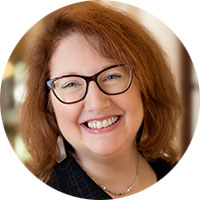Get Easy Health Digest™ in your inbox and don’t miss a thing when you subscribe today. Plus, get the free bonus report, Mother Nature’s Tips, Tricks and Remedies for Cholesterol, Blood Pressure & Blood Sugar as my way of saying welcome to the community!
Why colon cancer is on the rise in young people and how to curb it

I always thought of colon cancer as an “old person’s” disease. My great-grandfather died of colon cancer at the age of 87, which at the time of his death put him in the age group in which colon cancer most often occurred.
That has changed in recent years. Many were shocked when colon cancer claimed the life of 43-year-old Black Panther actor Chadwick Boseman after a four-year battle. His death highlights the fact that the rate of colon cancer in people under the age of 50 is on the rise even as it declines in older age groups. The American Cancer Society projects that in 2020, 12 percent of colorectal cancer cases will be diagnosed in individuals younger than age 50 — the equivalent of 49 new cases per day.
Out of all cancers, colorectal cancer is third in terms of both diagnosis and death in men and women in the United States. Increased screening by colonoscopy has helped drive down colorectal cancer rates in people 50 and older by identifying and removing precancerous polyps. But most health care plans don’t recommend colonoscopy screening until age 50, leaving younger people in the dark as to their status often until it’s too late.
It’s still not completely clear why the rate of colon cancer is increasing in those under 50 — but it is clear that the age for screening needs to be lowered. But until that happens, it’s important to be aware of factors that put you in a high-risk group…
Colon cancer risk factors
Researchers have identified several risk factors connected with colorectal cancer, including a family history of the disease or of having precancerous polyps. About 5 percent of people who get colorectal cancer have inherited gene mutations associated with cancer development. And individuals with inflammatory bowel diseases such as Crohn’s disease or ulcerative colitis are at higher risk of developing colorectal cancer.
Race also plays a role in who gets colon cancer. According to an American Cancer Society report, incidence rates of colorectal cancer in non-Hispanic black Americans are 20 percent higher than in non-Hispanic white Americans, and death rates are almost 40 percent higher in black Americans.
This is due in large part to the number of black Americans living in poverty. Poverty affects access to health care and nutritious food. The lack of both can lead to numerous diseases, including cancer, regardless of age.
The American Cancer Society report notes that people in the lowest socioeconomic status are 40 percent more likely to be diagnosed with colorectal cancer than people in the highest socioeconomic status. The report recommends screenings be increased in rural and other low-income areas to help address this disparity.
Access to colon cancer screenings is important, as is watching out for symptoms such as abdominal pain, blood in the stool, constipation, diarrhea, decreased appetite and unexplained weight loss. But there are also ways to modify your lifestyle that can help lower your risk of getting colon cancer.
Eat healthily and stay active
Studies have linked obesity with increased risk of several cancers, including colon cancer. In fact, one study demonstrated that carrying excess body fat at the age of 30 or younger could be linked with higher colon cancer risk later in life.
To battle the bulge, make sure your daily routine includes a healthy diet and some form of moderate exercise. Avoid processed foods, red meat and sugary drinks and be sure to eat plenty of vegetables, fruits and whole grains. And be sure you’re getting enough vitamin D — a low blood level of vitamin D has been connected with increased colon cancer risk.
Maintaining a healthy diet and weight also helps to prevent type 2 diabetes, another condition that can raise the risk of colorectal cancer.
It’s important to maintain a healthy gut microbiome, the population of “good” bacteria and microbes in the intestinal tract, if you’re looking to prevent colon cancer. Studies have suggested that damaging or upsetting the balance of the gut microbiome can result in a higher risk of colorectal cancer. One way to keep the gut microbiome healthy is to add prebiotics and probiotics to your diet. Probiotics add to the population of “good” bacteria in your gut, while prebiotics are specialized plant fibers that act as food for the “good” bacteria.
Don’t smoke or drink too much
You should give up cigarettes and cut back on your alcohol consumption if you want to lower your colon cancer risk. Smoking is most often associated with lung cancer, but it can also increase your chances of getting colon cancer, as well as other cancers.
Since colorectal cancer has been linked to moderate to heavy alcohol use, try to keep your alcohol intake to no more than two drinks a day for men and one drink a day for women. Even light drinking carries some risk, so it’s best to not drink at all. By eliminating alcohol from your diet, you not only reduce your risk of colon cancer, you lower your chances of developing stomach and liver cancers, as well as liver disease.
Editor’s note: Discover how to live a cancer prevention lifestyle — using foods, vitamins, minerals and herbs — as well as little-known therapies allowed in other countries but denied to you by American mainstream medicine. Click here to discover Surviving Cancer! A Comprehensive Guide to Understanding the Causes, Treatments and Big Business Behind Medicine’s Most Frightening Diagnosis!
Sources:
Colorectal Cancer Statistics, 2020 — American Cancer Society
Income and Poverty in the United States: 2018 — U.S. Census Bureau
Death of ‘Black Panther’ star sheds light on young adults’ colon cancer risks — UT Southwestern Medical Center
Adiposity and cancer at major anatomical sites: umbrella review of the literature — BMJ
Body fatness at an early age and risk of colorectal cancer — International Journal of Cancer
Colorectal Cancer Risk Factors — American Cancer Society












